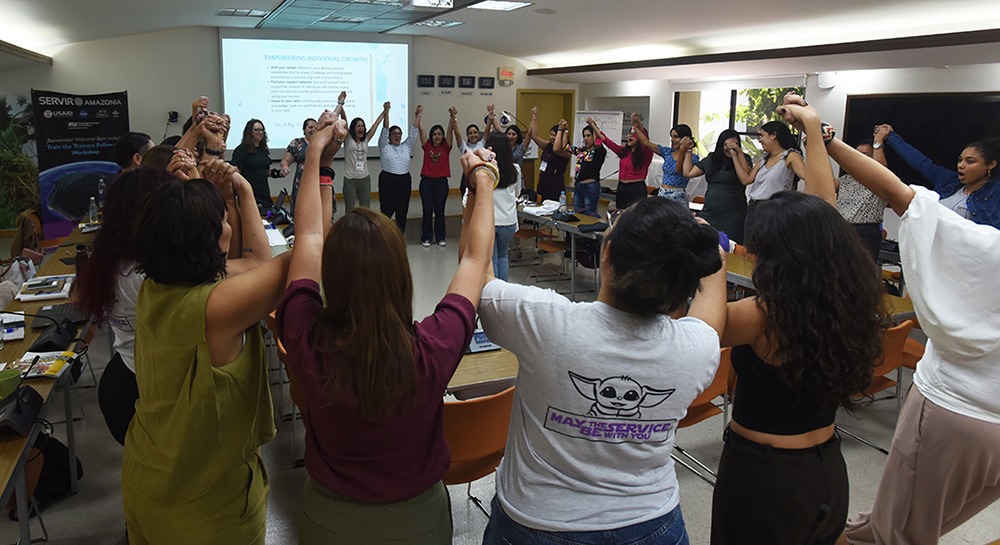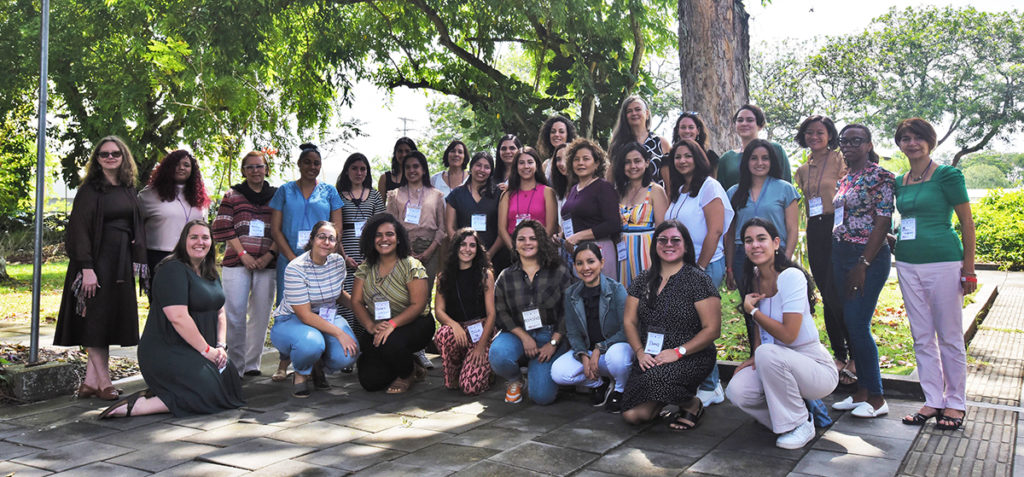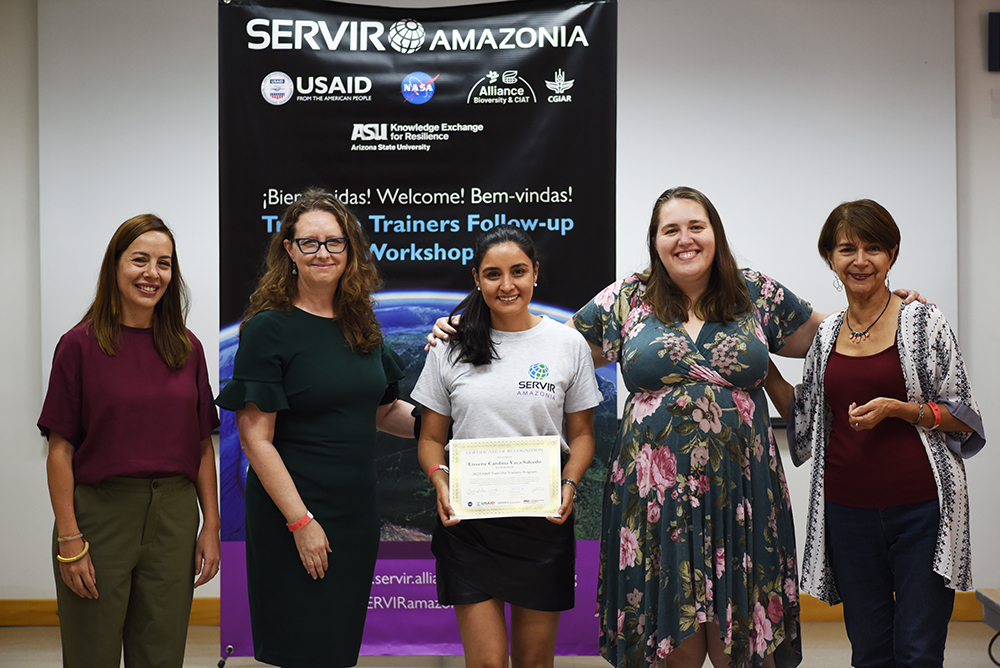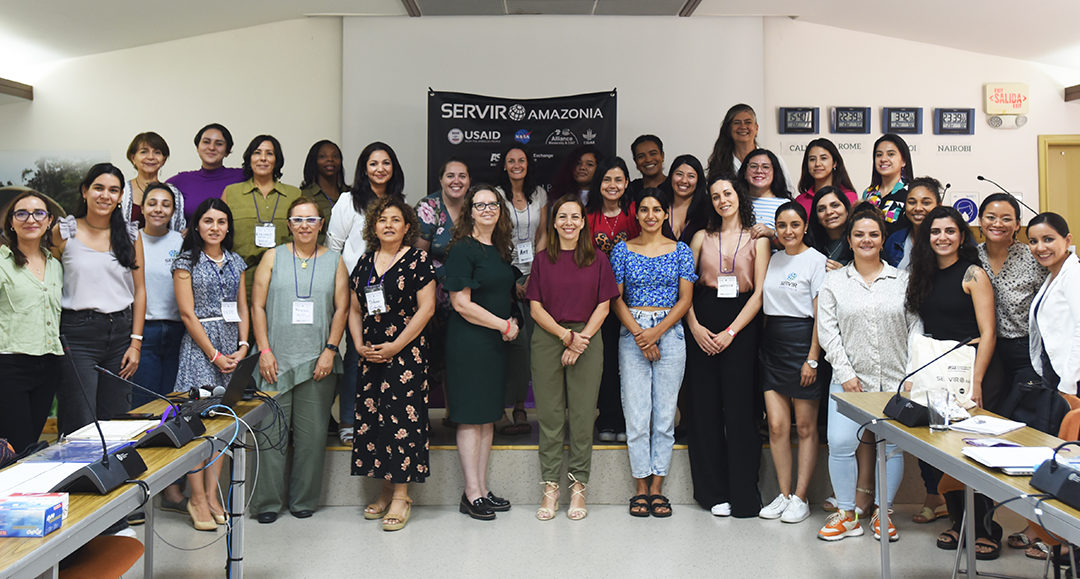Continuing their efforts to promote the inclusion of more women in science and to strengthen their network of female professionals, the Arizona State University (ASU) Knowledge Exchange for Resilience Program and SERVIR-Amazonia, held a “Train the Trainers: Empowering Women in Geographic Information Systems and Environmental Sciences” workshop, attended by 23 women from six countries in the Amazon Basin.
This workshop is part of the “Train the Trainers” Program, developed by ASU and SERVIR-Amazonia, which aims to strengthen soft skills and technical knowledge in science and technology issues for professional women working in these fields. To take part in the workshop, the women needed to: 1) belong to one of SERVIR-Amazonia’s public or private partners, and 2) to be at an early stage of their professional career – as “there is a lot of discrimination against women as they develop their professional careers in science and technology in the STEM careers. This workshop is an opportunity to close these gaps and develop supportive relationships between these young professionals and to facilitate their access to information and training opportunities,” said Marina Irigoyen, SERVIR-Amazonia’s gender advisor and workshop co-coordinator.

23 participants from 6 countries gathered in Cali to enhance their capacities and create a powerful network of female leaders. Photo: CIAT.
Patricia Solis, Executive Director of Knowledge Exchange for Resilience at Arizona State University (ASU), explained “the aim of this activity was to consolidate the community of practice of women scientists in environmental and geospatial fields towards greater exchange, capacity, and opportunity for each participant, the SERVIR Hub, and the broader community with a stake in the wellbeing in the Amazon region.”

Alliance Bioversity & CIAT provided its facilities to deliver this 7-days workshop co-organized by the Arizona State University (ASU) and SERVIR-Amazonia Program.
From May 28 to June 3, the group met at the Alliance of Bioversity International and the International Center for Tropical Agriculture (CIAT) facilities in Palmira, Colombia, to strengthen soft skills, and technology and environmental management. This covered topics such as network building and personal action planning, as well as drone management, and geospatial monitoring of ecosystem changes, among others. In the first workshop, participants also shared their experiences of replicating the workshops held in Peru and Brazil. Trainees also went on a tour of the of the “Future Seeds” genebank and other experimental centers at the CIAT campus, as part of the program’s activities.

From left to right: Marcela Quintero (Alliance Bioversity & CIAT), Patricia Solis (Arizona State University – ASU), workshop participant Lissette Vaca (Fundación EcoCiencia – Ecuador), Emily Adams (NASA), and Marina Irigoyen (SERVIR – Amazonia). Photo: CIAT.
According to Sandra Duarte, researcher, and senior lecturer at the Universidad Científica del Sur in Peru, “the workshop has been an opportunity to strengthen and acquire new technical knowledge in geospatial sciences, as well as to get trained in soft skills that will be very useful in my work and personal life. It has also allowed me to expand my network of contacts and become part of a community of women leaders who are working on environmental and geospatial issues.”
With this workshop and other similar events in the future, SERVIR-Amazonia hopes to encourage the development of a Community of Practice, that brings together young people working in geospatial technologies, remote monitoring, and satellite navigation, to enhance their learning, strengthen skills and exchange information, with the aim of further developing their professional and personal skills, and aspirations.



